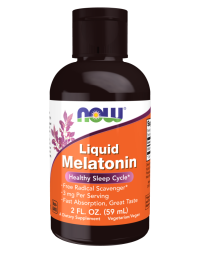Melatonin is a naturally occurring hormone that helps coordinate your body’s internal clock, signaling when it’s time to wind down and sleep. Many people turn to a melatonin supplement to support healthy sleep patterns, manage jet lag, or fine-tune a disrupted circadian rhythm. This guide explains what melatonin does, its potential benefits and considerations, and how to use melatonin for sleep safely and effectively.
What is Melatonin?
Melatonin is produced by the pineal gland in the brain, primarily in response to darkness. Levels rise in the evening to signal that night is approaching, then fall in the morning. This daily rise-and-fall pattern helps set the sleep-wake cycle and supports overall circadian rhythm balance.
Endogenous melatonin refers to the hormone your body naturally makes. Exogenous melatonin is the melatonin supplement available as tablets, capsules, liquids, and gummies. While endogenous melatonin fine-tunes your internal clock, exogenous melatonin can be used strategically to address timing issues—such as when travel, shift work, or blue-light exposure disrupts sleep onset. Many adults use melatonin for sleep to nudge the circadian rhythm back on schedule.
What does melatonin do to your body? In simple terms, melatonin acts as a timekeeper: it signals your brain and body that it’s time to wind down, helps reduce sleep latency (the time it takes to fall asleep), and supports schedule consistency. Through its role in circadian rhythm, it may also influence processes linked to mood regulation, metabolism, and immune balance. When used as a melatonin supplement, the timing and dose can help reinforce this natural signal.


Health Benefits of Melatonin
Melatonin’s most recognized benefit is sleep support. When taken properly, melatonin can help reset disrupted sleep timing. For many adults, low-dose melatonin used short term improves the ability to fall asleep and promotes a more consistent nightly routine.
Melatonin can also help realign the circadian rhythm. Travelers crossing time zones often use it to minimize jet lag symptoms such as daytime sleepiness and nighttime wakefulness. Shift workers may benefit from strategic timing to anchor sleep in a changing schedule, which can reduce grogginess and improve daytime alertness when sleep timing is off.
Some research suggests melatonin may influence mood and stress responses by stabilizing circadian rhythms—particularly in people whose sleep timing is irregular. While melatonin is not an antidepressant or anti-anxiety medication, better-cued sleep and a more synchronized internal clock can produce secondary improvements in mood, irritability, and daytime functioning.
Emerging evidence indicates melatonin may have antioxidant properties and help modulate immune activity. These properties suggest that melatonin could play a role in protecting cells from oxidative stress and supporting the body's defense mechanisms against infections and diseases. Additionally, melatonin's ability to regulate sleep patterns may indirectly enhance immune function, as adequate rest is crucial for maintaining a healthy immune system. These immune-related benefits are still being studied, and melatonin should not replace personalized medical care for immune concerns.
How to Use Melatonin Supplements
Melatonin comes in several forms to match different preferences and needs. Options include melatonin tablets for predictable dosing, gummies for convenience, and liquid drops for quick absorption. Choose a format that fits your nightly routine and allows consistent use. A melatonin supplement should complement healthy sleep habits rather than replace them.
Liquid options such as NOW Foods Liquid Melatonin allows for personalized dosing and a fast absorption. Gummy options like Nordic Naturals Melatonin Gummies features a gelatin-free and vegan gummy with zero sugar and a delicious raspberry flavor. Unique picks such as Wellwithall’s Sleep Support with Sustained-Release Melatonin combines L-theanine, ashwagandha, along with melatonin. The sustained-release mechanism ensures that the melatonin is gradually released over a few hours to aid in falling asleep and staying asleep for longer.
Recommended dosages vary. Many adults start with 0.3–1 mg about 30–60 minutes before bedtime. Some may use 2–3 mg if lower doses are not effective, and occasional short-term use of 5 mg is common for jet lag. Lower doses are often preferred to minimize next-day grogginess. For children and adolescents, consult a pediatrician for individualized guidance and dosing when considering melatonin for sleep.


Possible Side Effects and Precautions
Most people tolerate melatonin well, especially at low doses. Common side effects can include daytime drowsiness, headache, dizziness, or vivid dreams. These effects often improve by reducing the dose or adjusting timing. If you experience prolonged drowsiness after melatonin for sleep, consider taking a lower dose earlier in the evening.
Who should avoid melatonin supplements? Individuals who are pregnant or breastfeeding, those with autoimmune conditions, and people managing complex sleep disorders should consult a healthcare professional before use.
Is melatonin safe for long-term use? Short-term use appears safe for most adults. For long-term use, discuss a plan with a clinician to reassess dosing, timing, and ongoing need. Periodic breaks and focusing on sleep hygiene can help you maintain benefits while minimizing dependence. A melatonin supplement should be part of a broader, sustainable sleep strategy.




